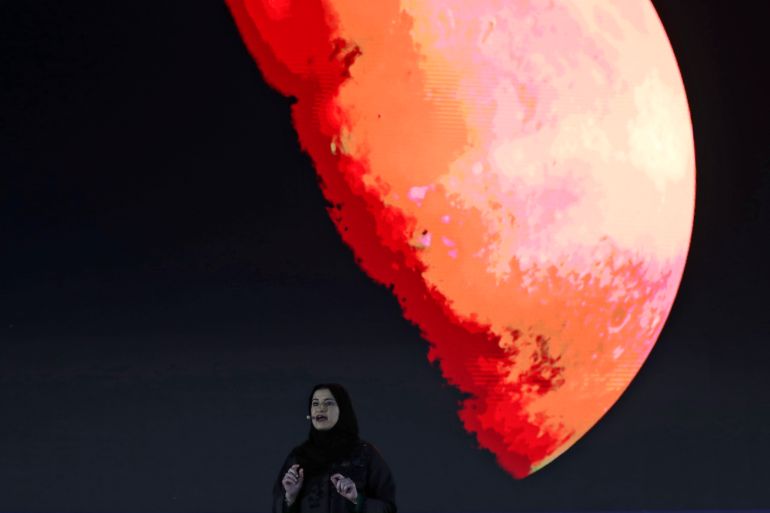UAE aims to land probe on asteroid between Mars and Jupiter
The United Arab Emirates project, which aims to collect data on the origins of the universe, will launch in 2028.

The United Arab Emirates on Tuesday announced plans to send a probe to land on an asteroid between Mars and Jupiter to collect data on the origins of the universe, the latest project in the oil-rich federation’s ambitious space programme.
A successful landing would see the UAE join an elite club of the European Union, Japan and the United States, which have completed the feat. The probe would remain behind on the asteroid, transmitting back to Earth information on the composition of the asteroid as long as its batteries remain charged.
Keep reading
list of 4 itemsSpace tourists come back to Earth after three days in orbit
Chinese astronauts return after 90-day mission to space station
In Pictures: SpaceX launches amateur crew on Earth-circling trip
The project targets a 2028 launch with a landing in 2033, a five-year journey in which the spacecraft will travel some 3.6 billion kilometres (2.2 billion miles). The spacecraft would need to slingshot first around Venus and then the Earth to gather enough speed to reach an asteroid some 560 million kilometres (350 million miles) away.
It is still under discussion what data the Emirates will collect but the mission will be an even greater challenge than previous ones, given the spacecraft will travel both near the sun and far from it, said Sarah al-Amiri, the chair of the UAE Space Agency and a minister of state for advanced technology.
“Because this comes on the back of the Emirates Mars mission, it is several factors harder, rather than exponentially harder,” al-Amiri told The Associated Press. “If we went to get this mission done from the get-go, without having the background that we currently have from the Emirates Mars mission, it will be very difficult to achieve.”
Some 1.1 million known asteroids circulate in the solar system, the remnants of its formation, according to NASA. Most orbit the sun in the area between Mars and Jupiter targeted by the planned Emirati mission. Their composition includes the building blocks of worlds like the Earth.
The UAE’s Space Agency said it will partner with the Laboratory for Atmospheric and Space Physics at the University of Colorado on the project. It declined to immediately offer a cost for the effort or describe what particular features of the asteroid it wanted to study. Al-Amiri said discussions are ongoing about what equipment the spacecraft will carry, which will, in turn, affect what features it can observe.
The project comes after the Emirates successfully put its Amal, or “Hope,” probe in orbit around Mars in February. The car-size Amal cost $200m to build and launch, excluding operating costs at Mars. The asteroid mission likely would be more expensive, given its challenges.
The Emirates plans to send an unmanned spacecraft to the moon in 2024. The country, which is home to Abu Dhabi and Dubai, also has set the ambitious goal to build a human colony on Mars by 2117 — but its more immediate goal is building out both a private and state-backed space economy with its projects.
“It is difficult. It is challenging,” al-Amiri said of the asteroid project. “We fully understand and comprehend that, but we understand the benefits of taking on such large, challenging programmes and projects.”